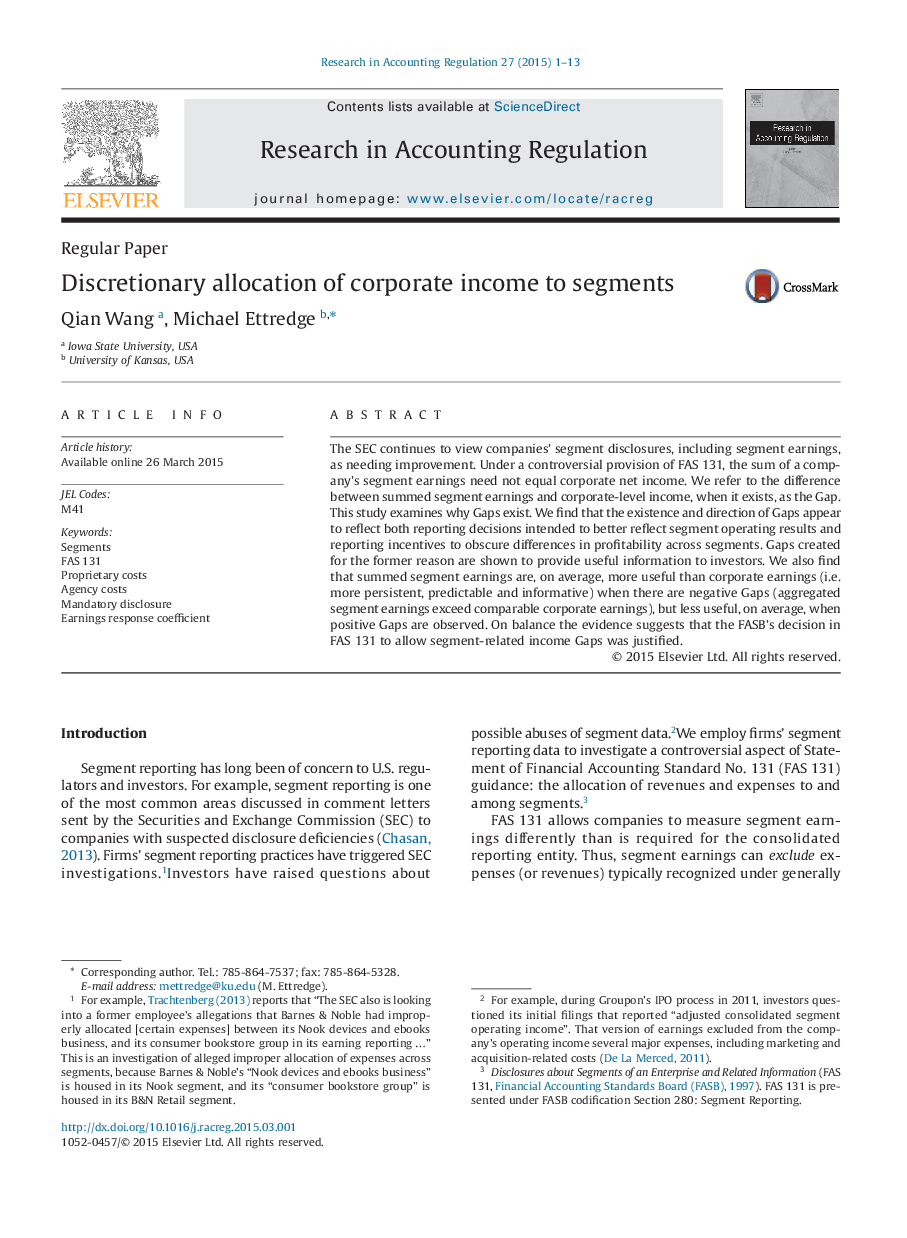| Article ID | Journal | Published Year | Pages | File Type |
|---|---|---|---|---|
| 1006564 | Research in Accounting Regulation | 2015 | 13 Pages |
The SEC continues to view companies' segment disclosures, including segment earnings, as needing improvement. Under a controversial provision of FAS 131, the sum of a company's segment earnings need not equal corporate net income. We refer to the difference between summed segment earnings and corporate-level income, when it exists, as the Gap. This study examines why Gaps exist. We find that the existence and direction of Gaps appear to reflect both reporting decisions intended to better reflect segment operating results and reporting incentives to obscure differences in profitability across segments. Gaps created for the former reason are shown to provide useful information to investors. We also find that summed segment earnings are, on average, more useful than corporate earnings (i.e. more persistent, predictable and informative) when there are negative Gaps (aggregated segment earnings exceed comparable corporate earnings), but less useful, on average, when positive Gaps are observed. On balance the evidence suggests that the FASB's decision in FAS 131 to allow segment-related income Gaps was justified.
